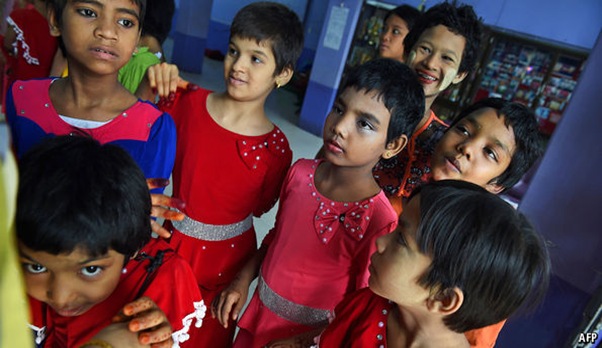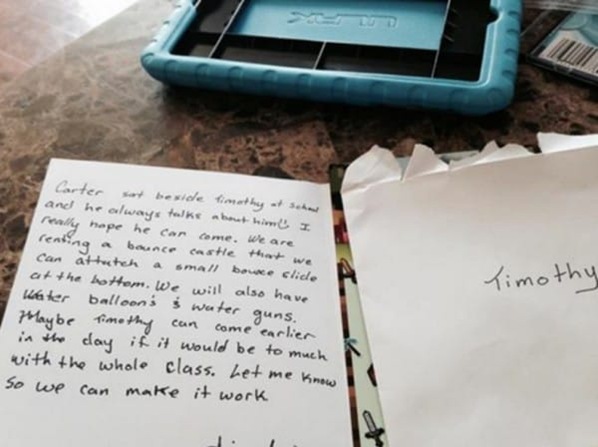Source:
http://www.economist.com/
Babies without borders

OF THE 2 billion children in the world, about 15m are parentless.
Millions more have been abandoned. Most of these unlucky kids are cared
for by other relatives. Others live temporarily with foster parents. But
hundreds of thousands languish in state institutions of varying degrees
of grimness. The youngest and healthiest will probably find local
adoptive parents. For older or disabled children, however, willing
adopters from abroad are often the best and only option. Yet the total
number of overseas adoptions is dwindling (see
article).
There is a reason for this. For decades cross-border adoptions were
often a racket. In Romania after the fall of the dictator Nicolae
Ceausescu in 1989, thousands of orphans were adopted illegally. In
post-civil-war Guatemala middlemen paid poor women a pittance to get
pregnant repeatedly—or simply stole babies and sold them. When one
country tightened the rules, the trade in babies moved somewhere laxer.
That trend has stopped. As countries have implemented the Hague
Adoption Convention, passed in the wake of the Romanian exodus, they
have stamped out the worst cases. Last year 12,500 children were adopted
by overseas parents, about a third of the total just over a decade ago.
The crackdown was necessary: babies are not goods to be trafficked. But
many governments have gone too far. It is now too hard for willing,
suitable parents to adopt needy children—and this hurts both the
would-be adopters and, more importantly, the children.
Cambodia and Guatemala have stopped foreign adoptions completely;
Russia has banned those by Americans. In many other countries the
paperwork can take years. This is cruel. The early months and years of
life are the most crucial. Depriving a child of parental love—inevitable
in even the least dire orphanage—can cause lifelong scarring. The
priority for any system should be to perform the necessary checks as
quickly as possible and to place every child with foster or adoptive
parents.
The Hague convention is a good starting-point. It says: first try to
place an abandoned child with a relative; if that fails, try for a local
adoption; and if a local family cannot be found, look overseas. Critics
of international adoption point out that children who grow up in a
different culture sometimes feel alienated and unhappy. This is true,
but for many the alternative—growing up in an institution—is far worse.
When overseas adoption is a last resort, the children who end up with
foreign families are the ones whom no one else wants: the older ones,
the severely handicapped, members of unpopular ethnic minorities. In
Guatemala only 10% of the children awaiting adoption are babies or
toddlers without special needs. Few Guatemalans will consider taking the
other 90%. Plenty of evangelical Christians in America would be happy
to. It makes no sense to stop them.
No one cares for you a smidge
Creating a fast, safe adoption system should not be costly. Indeed,
it should be cheaper than keeping children in institutions. All it takes
is political will, as can be seen from the success of schemes in Peru
and Colombia. Public databases that match children with good, willing
parents work well locally in some rich countries. (Pennsylvania’s is
praised, for example.) There is no reason why such systems should not be
made international. Children need parents now, not next year.
Comment by Robin E. Sizemore
“All too often foreign governments come to rely on UNICEF’s child
welfare policy of de-institutionalization programs, which on the surface
appear to be in the best interest of any child. However, what has
resulted is a permanency plan of foster care, as the end goal for these
children. Governments are all too happy to rely on subsidized programs
and justify it to the beat of ‘keeping children’s heritage and culture’
over a child’s TRUE best interest, which is a loving, suitable,
permanent family – wherever that may be. The preamble of the Hague
offers that ‘a family environment’ is every child’s right – until that
phrase is removed, and permanent family is made the single goal for
every child, we can continue to expect governments to fail children
through policy and practices counter to any child’s best interest.”
Robin E. Sizemore
Executive Director of Hopscotch Adoptions, Inc and Adoptive parent






